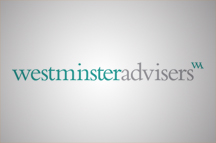 With the transition from coalition to majority government comes a change in how government policy is formed. Half the Cameron-Clegg-Osborne-Alexander quad, the coalition’s top decision-making forum, has been evicted from office. Understanding how to inform what the new government does means getting to grips with its governing style, power relationships and policy-making functions.
With the transition from coalition to majority government comes a change in how government policy is formed. Half the Cameron-Clegg-Osborne-Alexander quad, the coalition’s top decision-making forum, has been evicted from office. Understanding how to inform what the new government does means getting to grips with its governing style, power relationships and policy-making functions.
Despite the Lib Dems no longer being part of government there is remarkable continuity around the Cabinet table from before the election. All the major offices of state stay in the same hands. Many departments follow suit. Hunt at Health, Morgan at Education, McLoughlin at Transport to name a few.
All are known quantities to their departments’ key internal and external stakeholders. Unshackled from the constraints of coalition, each will doubtless find opportunities to advance a grassroots-pleasing policy here and there; but in a number of fields the policy direction before the election has been strengthened by the result, the NHS’s Five Year Forward View for instance. Admittedly a greater shift in policy is evident where Conservatives have replaced Lib Dems as secretary of state, such as at DECC and BIS.
Continuity in personnel exemplifies the prime minister’s approach to running his administrations. Cameron is described as pragmatic rather than ideological, relatively hands-off on day-to-day issues in comparison with No.10’s other recent occupants and trusting his secretaries of state with their portfolios. These are significant factors for how policy is made and decisions are taken.
The approach is not always regarded as a strength. Critics inside and outside the Conservative party question No.10’s ability to keep on top of and lead the policy agenda. With Labour looking inward after defeat and Conservative strategists eager to establish a narrative for this parliament that consolidates the party’s foothold in seats gained in May, No.10 has moved to manage strategy, coordinate policy and drive implementation better.
.jpg)
The shake-up produces notable changes. Craig Oliver, previously the prime minister’s communications director, has been given a more political, cross-government brief to oversee policy implementation. Oliver is supported by Laura Trott, formerly No.10’s women, education and childcare adviser. She now orchestrates No.10’s news grid, tasked with planning and timetabling policy announcements and initiatives. Expect both individuals to influence which policies fly and which do not.
Several other innovations in the last few weeks illustrate the policy and decision-making nexus at the heart of the government. They emphasise No.10’s desire, free from the sometimes messy compromises of coalition, to get a better grip of policy formation and implementation. They also show that reinforcing the government’s centre will not necessarily be to the detriment of the collegiality, empowerment and trust which Cameron has hitherto put in his cabinet peers.
Firstly, No.11 and the Treasury matter more now than before the election as a partner to No.10. The Chancellor’s allies are found in more strategically important places across government. Sajid Javid at BIS, for example, is vital for addressing the UK’s productivity challenge and keeping the department functioning amid further cutbacks. Or Greg Hands as Chief Secretary to the Treasury, charged with managing spending cuts and the deficit, and Matt Hancock in the public service reform role in the Cabinet Office.
Secondly, the Cabinet Office itself is set for an enhanced role in policy-making and delivery. This focuses on Oliver Letwin who now has full cabinet status. He will review policy, make sure it is delivered and aim to solve problems before they blow the government off course. Letwin is almost omnipresent across the government’s streamlined cabinet committee structure and new, cross-departmental implementation taskforces, one for each of the government’s key priorities. Watch closely for how those ministerial taskforces change as the legislative and policy agenda evolves.
Thirdly, a revamped policy unit has been created in No.10 itself. While the policy unit’s full line-up is still to be announced, the signals are it will be a more conventional policy-making support structure for the prime minister than the previous policy board. Camilla Cavendish heads the unit. A contemporary of Cameron’s at Oxford, ex-McKinsey consultant and Times / Sunday Times columnist, she has been a trustee of Cameroon think tank Policy Exchange. Her deputy, Daniel Korski, a special adviser in the pre-election No.10 team, brings an international edge to the unit with experience at EU level, in the Middle East and in Washington.
Cavendish’s appointment has been interpreted as No.10’s willingness to entertain ideas it may not instinctively choose, but which appeal to its one nation-aspiration-blue collar narrative. Initially the agenda will be realising the party’s manifesto themes on jobs, skills and housing. Then it is likely to transition into a policy framework that marries economic growth with social responsibility and moderates negative perceptions for the government around further spending cuts. These are cornerstones of the Cameron project.
Expect the policy unit to grow in stature and significance as the parliament progresses, the party’s proposition for voters in 2020 develops and challenging policy issues inevitably emerge.














